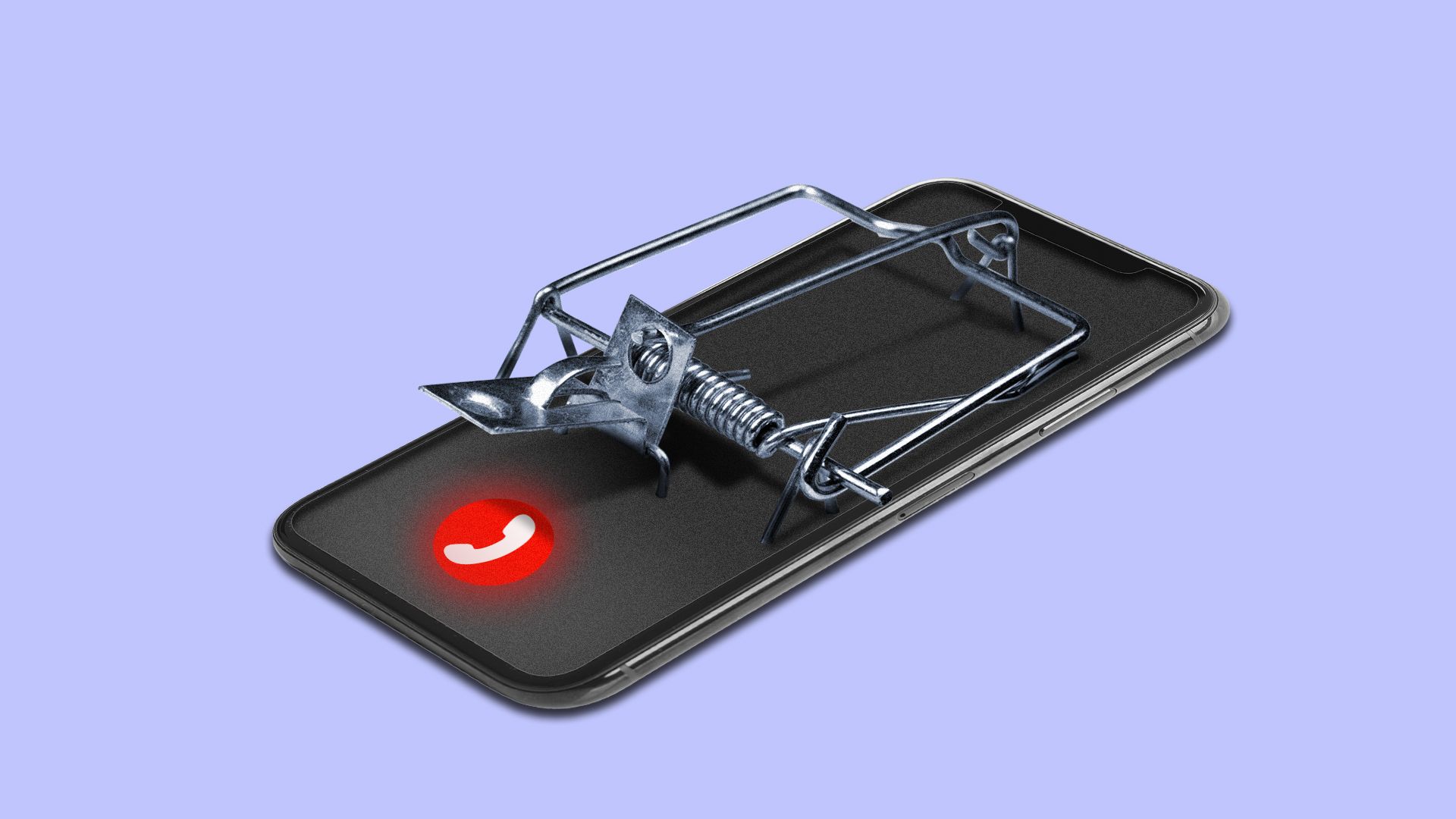Agencies take aim at coronavirus scam robocalls
Add Axios as your preferred source to
see more of our stories on Google.

Illustration: Sarah Grillo/Axios
Federal regulators are racing to try and tamp down on a glut of robocall scams taking advantage of coronavirus anxiety to push phony medical kits, duct cleaning and even free Netflix.
Why it matters: Critics already want the government to take firmer action to stem the tide of robocalls, which disproportionately victimize older Americans — who are also most at risk from the spreading pandemic.
What's happening: The Federal Communications Commission on Friday launched a website alerting Americans to common coronavirus-related robocall scams and offering tips on how to avoid getting swindled.
- The agency has received more than 30 complaints of unwanted calls connected with the pandemic, spokesman Will Wiquist told Axios. The agency is reviewing complaints for specific scam patterns, he said.
- "We are aware of and concerned by scam calls and texts trying to prey on consumers during this crisis," Wiquist said in a statement. "We hope consumers will use extreme caution and will refrain from providing any suspicious callers or texters with any personal or financial information."
"The FCC needs to throw the book at scam-artists behind these robocall campaigns— and do it fast. At the same time, the agency needs to prioritize a rapid response to trace back these calls and cut them off at the source."— Jessica Rosenworcel, FCC commissioner
Background: The FCC has called on carriers to step up efforts to fight illegal robocalls, and is set to vote this month on a plan to make providers implement caller ID authentication tech to crack down on "spoofed" calls.
- The FCC, Justice Department and Federal Trade Commission earlier this year coordinated efforts to press carriers to halt the calls.
- The FTC has received more than 1,800 coronavirus complaints, with about 260 specifically about coronavirus robocalls. The agency urged consumers to hang up on the calls in a notice this week.
- The Justice Department has seen a twist on a common robocall scam, in which a caller claims the recipient's grandchild is in the hospital with coronavirus and needs money, a spokesperson said.
Meanwhile: A telecom industry group is working with the FCC, FTC and DOJ to trace and identify the sources of the millions of coronavirus-related calls pinging Americans' phones.
- USTelecom, the trade association behind the anti-robocall Industry Traceback Group, has identified some service providers that are putting the calls through to Americans, and urged them to stop.
- "We're certainly coordinating with the U.S. government to make sure that they're aware of these calls and how they're getting on to the U.S. network," USTelecom senior vice president of policy and advocacy Patrick Halley told Axios.
- Specific robocall campaigns the group is tracking include phony cleaning services, test kits and healthcare information.
By the numbers: There have already been millions of robocalls seizing on coronavirus fears, according to call-blocking company YouMail, which estimates 1 million to 2 million calls daily about the virus.
- Transaction Network Services, which provides spam call protection services to carriers, said a robocall purporting to be from 3M offering a coronavirus safety and medical kit, including a mask, reached 20,000 people in Los Angeles in a single day.
- Other recent scams included a sham offer for five free months of Netflix to "keep you occupied during coronavirus" in exchange for sharing information, as well as a fake coronavirus home sanitization service, TNS chief product officer Bill Versen told Axios.
- "The bad actors are changing their tactics to try to capitalize on using the coronavirus and the fears of people to take advantage of the offer and exchange information that could get them in trouble," Versen said.
